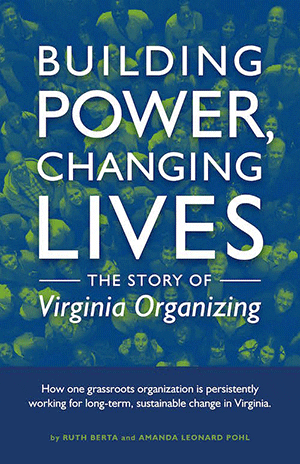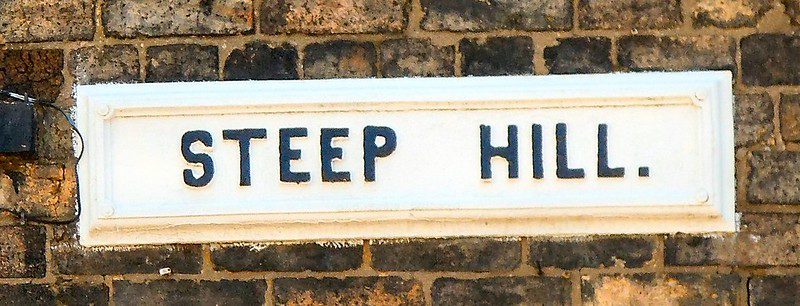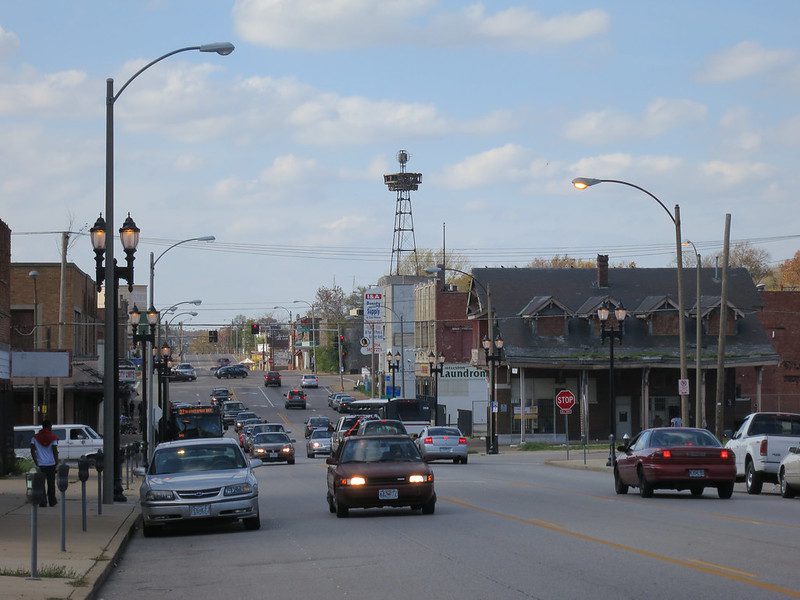
The national congregation-based community organizing networks, with perhaps the Industrial Areas Foundation's Texas IAF being the most famous because of Mark Warren's writing, have also tried their hand at statewide organizing from a congregation based strategy, and the survivors of the right wing war on ACORN have attempted to build new state-wide organizing groups. But Bertha and Pohl's book, covering the twenty-year history of Virginia Organizing, gives the first full insider's perspective on the state-wide organizing model. And it tells the story with honesty—the victories and the defeats.
Why statewide organizing anyway? Isn't community organizing by definition, local? Well, what are people to do when their state government guts the will of the local people?
Here in Wisconsin, when a local community passes an ordinance or engages in a practice that may impede the unbridled pursuit of predatory profiteering, gendered inequality, racial/ethnic discrimination, or other passions of an empowered far right-wing elite—whose politics are rapidly approaching jaw-dropping extremes—their state government starts working on legislation to thwart the local community. Under such conditions, local organizing victories are fleeting at best. State governments are also the site of manipulated election maps that are designed to thwart the will of voters, enabling anti-democratic governments to gain power. And finally, it is from state governments that most federal government elected officials come. Having a strong local organization might help to elect one accountable federal representative, but having a strong state organization might help to elect many such representatives.
The first thing to learn is that this type of organizing, as expressed by Virginia Organizing, is much more than “state-wide.” In fact, it is much more accurate to describe it as ‘multi-local.’ Virginia Organizing takes the national organizing network model and shifts it to the level of the state. Interestingly, Virginia Organizing spent its first five years building local chapters before it took on its first big state-wide campaign. It experimented with a variety of ways of building up local groups, including an affiliate model, but they found that the potential efficiency offered by the affiliate model brought with it the cost of a weaker form of solidarity. They still do selective “joint plans of work” with small emerging groups that need a fiscal agent, but the emphasis is on building their own chapters.
This skepticism of false efficiencies also led Virginia Organizing to change its name from the Virginia Organizing Project in 2010. In a Twitter-mad era seemingly defined by acronym-speak, the former name, reduced to the acronym “VOP” didn't suit an organization that wanted an irreducible voice. Virginia Organizing has no acronym.
Virginia Organizing's cautious approach to working with other groups inside the state also extends to working with national-level campaigns. And they stepped back from electoral campaign work such as voter registration and canvassing work after the national and state elections of 2008 and 2009. What has remained core to their work is local chapter building and state-level legislative campaigns. Virginia Organizing has influenced state spending and taxation policies, housing policies, ban the box legislation, and a variety of other policies. In fact Bert and Pohl provide a nearly 60 page appendix of organizing accomplishments. But they haven't won everything they wanted. Victories on issues like housing have only been partial. And they failed to convince their increasingly right-wing state government to pass Medicaid expansion.
What should we take away from this story? I began by insisting that we needed state-wide organizing to prevent the ascension of right-wing political power. Virginia Organizing hasn't accomplished that. Of course we can invoke the usual explanations—power is even more powerful than we expect; the powerful are too good at cutting off the money flow; history has not provided the necessary political opportunities. And we can always try to take solace in the “without organizing things would be even worse” invocation.
But these are all depressing and disempowering rationalizations more fitting of an unreflective sociologist than a community organizer. It's time we upped our game to focus on how to do better community organizing even when history is against it, the funders won't fund it, and the political opportunities are missing. And that, too, will be an uphill battle. The terrain of community organizing has shifted against the highly trained community organizer to the untrained indigenous organizer, who may have a depth of community knowledge but may not have a breadth of organizing strategy tools. As the racial and class divides grow, the rejection of academic knowledge gives way to the belief that all knowledge can be obtained through Google, and the “local” achieves the status of infallibility, the hope that we can up the game by developing better community organizing strategy through research and training fades.
Virginia Organizing may point the way forward. A highly professional organization, whose core mission has always been diversity, with a new name symbolically opposing cyber-era dehumanization—realized in 2014 that its base was not strong enough to oppose the right-wing power that had taken hold in the state, and they recommitted themselves to stepping up their game, rebuilding and reenergizing their base with more local organizing, and reconsidering their strategy.
It is my wish that they figure it all out.





Comments